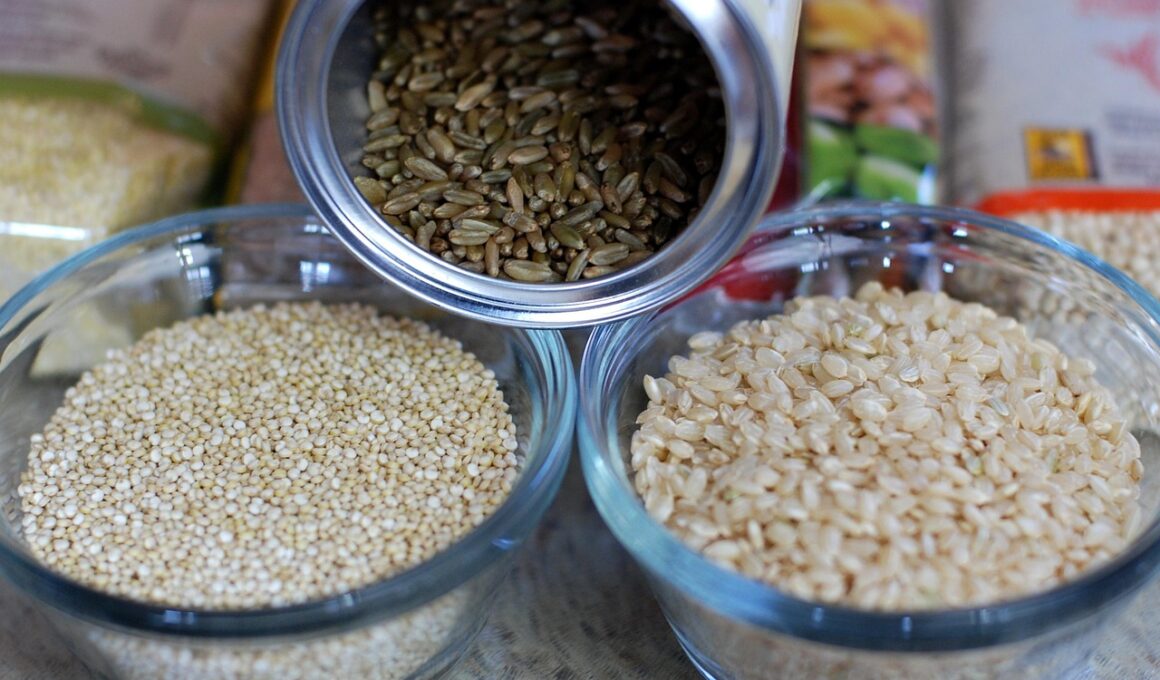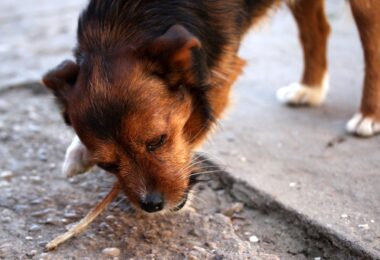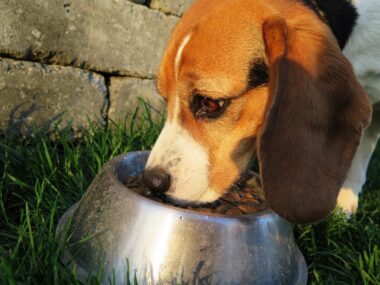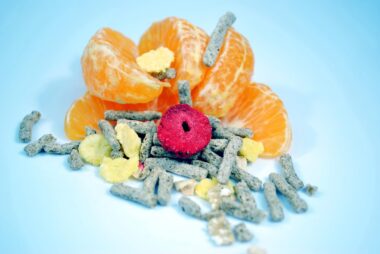Natural Fiber-Rich Foods Safe for Dogs
When considering proper dog nutrition, one crucial component is fiber, as it plays a significant role in maintaining a healthy digestive system. No dog should be deprived of fiber, which helps promote regular bowel movements, and prevents constipation and diarrhea. Providing your furry friend with a balanced diet enriched in fiber is essential for overall health and wellbeing. A variety of natural, fiber-rich foods can be safely included in your dog’s diet, enhancing their meals while delivering added health benefits. Incorporating fiber into their nutrition can also help maintain a healthy weight, reduce the risk of diabetes, and support heart health. Start with integrating fiiber-rich options that are both nutritious and palatable for your pet. Recognizing fiber’s importance can lead to a happier, healthier dog. Here are some natural, safe sources of fiber you can consider: pumpkin, carrot, sweet potato, brown rice, apple (without seeds), and green beans. All these foods are not only safe but offer additional vitamins as well. Always remember to introduce new items gradually, monitoring for any adverse reactions or digestive issues. Vet consultation is advisable for dietary planning.
Pumpkin is an excellent fiber source that dogs usually relish. This orange delight is packed with essential nutrients and is low in calories. It aids digestion and keeps your dog’s gut healthy. Pumpkin can be included as a puree in meals or mixed with dog food for an interesting twist. It is rich in beta-carotene, which can improve your pet’s vision and immune function. It is important to use plain, canned pumpkin, as flavored or spiced varieties may contain harmful ingredients. When feeding your dog pumpkin, a small amount goes a long way; start with a teaspoon for small dogs and larger portions for bigger breeds. Always consult your veterinarian for personalized advice based on your dog’s specific health needs. Another great fiber-rich option is carrot. These crunchy vegetables can be given raw or cooked, serving as a delicious, healthy snack. Carrots provide a dental benefit, as they can help clean your dog’s teeth while they crunch away. Including these fiber-rich foods not only enhances their diet but also offers various health benefits.
Sweet Potato Benefits
Sweet potatoes are another fantastic fiber-rich food safe for dogs, offering a multitude of health perks. Rich in vitamins A, B6, and C, this superfood is a nutritional powerhouse for dogs. The soluble fiber in sweet potatoes can help stabilize blood sugar levels and maintain a healthy digestive track. Sweet potatoes can be served mashed, baked, or boiled, making them an incredibly versatile option that can be easily added to your dog’s meals. Be cautious not to add any butter, sugar, or seasonings when preparing sweet potatoes. Begin with small amounts to prevent any stomach upset, especially when introducing new foods into your dog’s diet. Always ensure to remove any peeling before serving, as it can be tough for your dog to digest. Along with fiber, sweet potatoes deliver antioxidants and minerals that support overall health. While both pumpkin and sweet potatoes are excellent, controlling portion size is vital to avoid unwanted weight gain in your furry friend. Balancing high-fiber foods with protein and healthy fats leads to an optimal diet that ensures long-term health and happiness.
Brown rice is another beneficial carbohydrate that adds healthy fiber to your dog’s diet. It promotes digestive health and can help dogs maintain optimal weight. For dogs with sensitive stomachs, switching from white to brown rice can significantly improve their digestion. The addition of brown rice to their meals can help add bulk to their stools, reducing the likelihood of diarrhea. It’s recommended to cook brown rice before serving to your pet, as raw grains can be difficult for dogs to digest. When mixed with protein sources, brown rice provides a balanced meal that keeps a dog’s energy levels steady throughout the day. Aside from these options, you may also consider apples as a fiber source. Apples, devoid of seeds and core, are another nutrient-rich treat that dogs often adore. Packed with vitamins A and C, as well as antioxidants, apples can help support the immune system. Like all new foods, apples should be introduced gradually to assess tolerance. Remember to adhere to recommended serving sizes and not to overindulge your pup in these tasty fruits, as moderation is key.
Green Beans for Dogs
Green beans serve as a low-calorie, crunchy treat full of fiber, making them a wonderful addition to your dog’s diet. They are not only nutritious but can also promote satiety, helping dogs manage their weight. Whether served fresh, steamed, or canned (without added salt), green beans can be a fantastic supplement to your pooch’s meals. Fresh green beans can also be a fun way to engage your dog during mealtime, as they can be tossed for your pup to catch. The vitamins and minerals found in green beans, such as iron and vitamin K, contribute to their overall health as well. Like all dietary changes, introduce green beans gradually to avoid any digestive upset for your dog. It can be beneficial to mix them with other fiber sources, providing your dog with a variety of textures and tastes in their meals. Many dog owners find this veggie variety appealing when preparing homemade treats or meals. Alongside the fibrous options mentioned previously, incorporating green beans adds diversity and abundant nutrients to keep your dog healthy and happy.
When including high-fiber foods in your dog’s nutrition, balance is the key to achieving optimal health. Introducing these foods too rapidly can lead to digestive issues such as gas or diarrhea. Always start with small portions, gradually increasing as your dog adjusts. This cautious approach allows your dog to adapt their digestive system, obtaining the benefits of dietary fiber without discomfort. Moreover, consulting your veterinarian will ensure a tailored dietary plan specific to your pup’s individual needs, age, and overall health. Health impacts vary significantly amongst dog breeds and sizes, necessitating personalized advice for the best nutritional outcomes. Maintaining a balanced diet that includes fiber-rich foods, along with proteins, fats, and carbohydrates, is essential for sustaining energy and overall wellbeing. A comprehensive approach towards a balanced diet results in not only a well-nourished dog but also an enriched quality of life. Watch for signs of allergies or intolerances as you introduce new ingredients into their meals to prevent issues. Ultimately, a playful pet is a happy pet, and a proper diet plays an integral role in ensuring their vibrant health.
Conclusion
Prioritizing fiber in your dog’s diet is essential for promoting their digestive health and overall quality of life. With a variety of safe, natural fiber-rich foods available, dog owners can offer delightful, nutritious meals. Each ingredient discussed—from pumpkin to green beans—brings unique benefits with the promise of enhanced health and vitality for your canine friend. Incorporating these foods with a keen understanding of portion control and gradual introduction can help your dog thrive. Always keep in mind the importance of a balanced diet that encompasses all necessary nutrients. Beyond fiber, your dog needs proteins to build and repair tissues, and fats for energy. Ensuring a wholesome meal plan will lead to a happier, healthier pet. Each dog is unique, and what may work for one might not suit another; regular consultations with your vet will provide guidance. Finally, enjoy the journey together as you explore different ways to bring nutrition and positive experiences into your dog’s life, and cherish every wagging tail moment as you nourish your pet with love.
Remember that while fiber offers numerous benefits, each dog reacts differently to dietary changes. Observing your dog’s reaction when introducing new foods is essential for ensuring their health. Regular check-ups with your vet, along with a close watch on your dog’s behavior and health changes, can guide your dietary decisions for your furry friend. By maintaining a careful balance of fiber, vitamins, and protein in the diet, you’ll equip your dog with the right tools for great health. Ultimately, the effort to provide a nutritious diet pays off in your dog’s increased energy, a shiny coat, and a playful spirit. Investing in quality nutrition opens the door to a fulfilling life for your canine companion, allowing them to thrive well into their senior years. Little changes can have a big impact on your dog’s overall wellness; consider swapping out highly processed treats for natural alternatives. Choosing whole food options ensures that your dog benefits from essential nutrients that support their internal systems. Together, let’s promote the health and happiness of our pups through informed nutrition choices and celebrate the bond we share.





